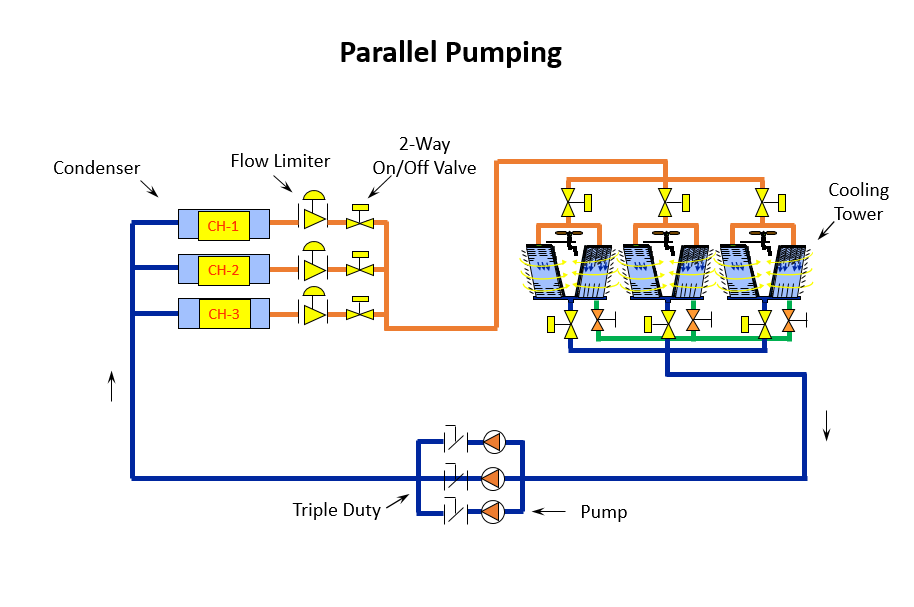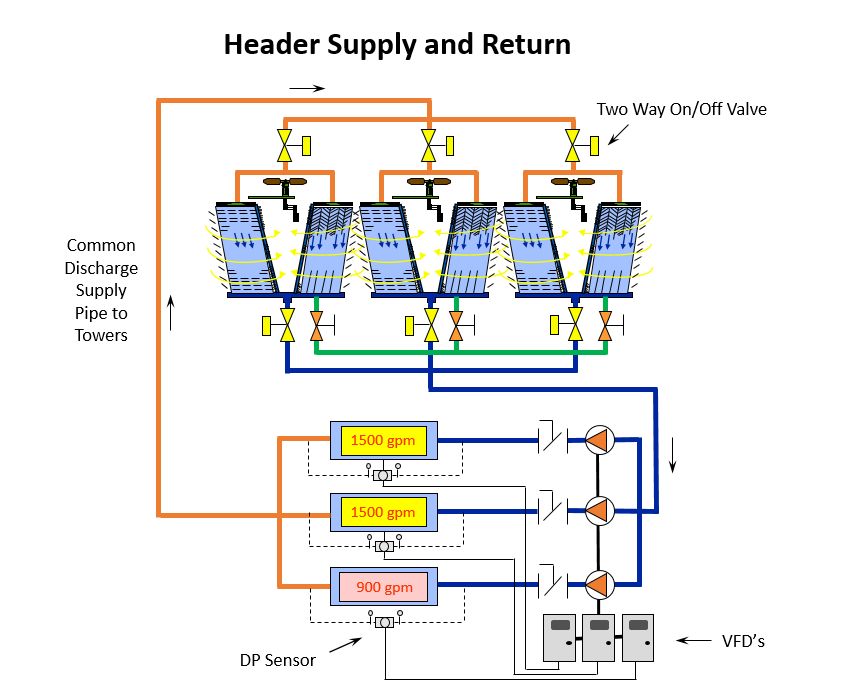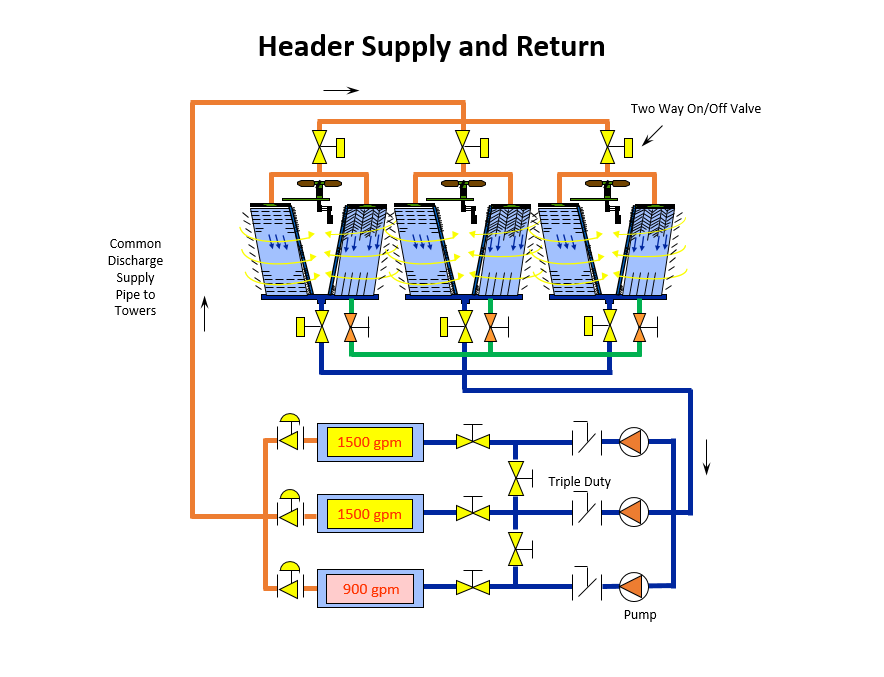Over the last few weeks our Monday Morning Minutes posts have looked at pumping issues with parallel, equal-sized condensers and pumps. This week we will look at the parallel condenser systems where the condensers are different types or sizes.

When the design incorporates unequal chillers or machines of different types, the pressure drop will most likely be unequal. This will increase the over-pumping of the condenser with the smaller pressure drop. As explained in the last few Monday Morning Minutes, using automatic flow control valves or flow limiters will solve the problem.
If we try to use the variable frequency drive and a differential pressure (DP) sensor without the flow limiters, there’s a good chance we will over-pump the condenser with the smaller pressure drop.
Condensers with Dedicated Pumps
Another option when using unequal condensers is to dedicate a pump to a condenser. With this type of design, the common supply and return headers have to be sized for all of the chillers that are running. When using constant-speed pumps, you might need to use automatic flow balance valves to protect the condensers if there’s a high level of friction loss common to all of the pumps. This was the subject of the last few articles.

You could also incorporate variable-frequency drives. Each pump and condenser set has its own DP sensor. In this case the DP sensors are set for the pressure drop of each condenser. When there’s a call to activate a chiller, the corresponding pump is started and the pump speed will adjust to maintain the design flow rate across the condenser. When more chillers are activated, the speed of the pump will increase to maintain the flow through the condenser.

The main advantages of this system are
- Having a dedicated pump per chiller designed for that chiller’s flow rate
- Elimination of 2-way on-off valves on the condenser
- Elimination of the pump header piping
The main disadvantage is the loss of a standby pump. If there’s a dedicated standby chiller with a pump, this is less of a concern. If standby is a concern and flow limiters are being used, you could add butterfly valves between the pumps so any pump could flow through any condenser. Of course, all pumps would have to be sized for the largest condenser.
There’s an option to use the original parallel pumping system with standby and variable-speed drives even though there are uneven chillers. It involves the use of automatic flow control valves on the low-pressure drop chillers only, and the single DP sensor across the header. This might be a good time to have your B&G local representative available to assist in reviewing the pump and system curves.
WARNING: Always use a single sensor to parallel pumps. You should never run the parallel pumps at different speeds unless you have verified the hydraulics will avoid dead heading a pump by design OR BY UNINTENDED OPERATION BY THE OWNER.
We have had several questions about the number of two-way valves on the sketches, and we’ll address that question next week.


